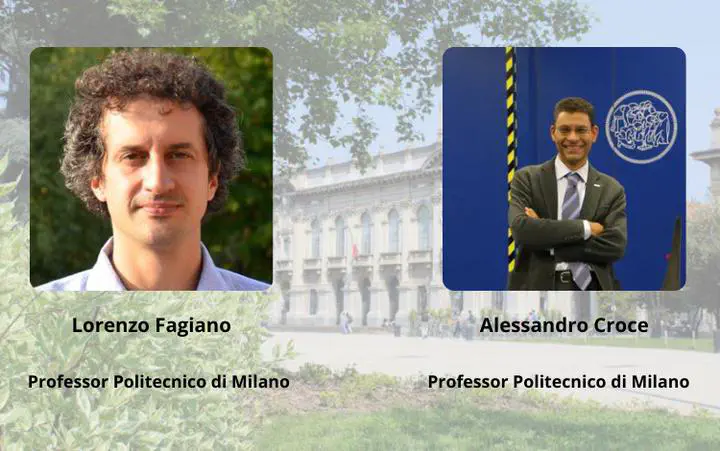Lorenzo Fagiano, POLIMI "Guiding frontiers-pushing researchers and advancing AWE is incredibly rewarding"

This week in our AWETRAIN supervisor interview series, we spoke with Professors Lorenzo Fagiano and Alessandro Croce from Politecnico di Milano, one of the leading universities shaping research and training in airborne wind energy.
AWE is emerging as a flexible and scalable addition to Europe’s renewable energy mix. At Politecnico di Milano, Professors Fagiano and Croce are leveraging decades of expertise in control engineering, flight mechanics, and system integration to explore how AWE can operate reliably, autonomously, and at scale.
Politecnico di Milano is the largest technical university in Italy. Current research activities on airborne wind energy are carried out at the Safe Automation Systems Laboratory (SAS-Lab) on the Leonardo campus and the Wind Energy Lab (Poli-Wind) at the Bovisa campus.
This is also the location of the Politecnico di Milano Wind Tunnel GVPM, a closed-circuit facility with two test sections: one designed for low-turbulence, high-speed testing, and a larger Boundary Layer Test Section used for civil applications. Together, these facilities offer one of the broadest ranges of experimental setups available for AWE and wind engineering research.
“Our goal in AWETRAIN is to train doctoral candidates to tackle the full stack of challenges for AWE, from robust control and autonomous operation to fleet optimisation and commercial deployment,” explains Prof. Fagiano.
Within AWETRAIN, their team focuses on three key doctoral projects:
DC3 & DC4: Developing autonomous, robust onboard generation and long-term operation strategies.
DC6: Optimising wind farm design and system-of-systems operation for multiple AWE units.
Professors Fagiano and Croce emphasise that interdisciplinarity is essential. Airborne wind energy combines aerodynamics, structures, aero-servo-elasticity, mechanical systems, control engineering, electrical conversion, and regulatory awareness. Progress depends on integrating these fields across universities, research centres, and industry.
“Doctoral candidates at Politecnico will gain hands-on experience in modelling, experimental validation, and industry-relevant applications,” says Prof. Croce. “They will also learn how to navigate regulatory, commercial, and societal challenges, making AWE credible, deployable, and impactful.”
For both professors, mentoring the next generation is deeply motivating. “Being able to guide students who will push frontiers, challenge assumptions, and advance the AWE field is incredibly rewarding,” adds Prof. Fagiano.
Through Politecnico di Milano, AWETRAIN doctoral candidates benefit from state-of-the-art labs, interdisciplinary collaboration, and strong industry linkages, ensuring airborne wind energy evolves as a scientifically rigorous, commercially viable, and grid-ready technology.